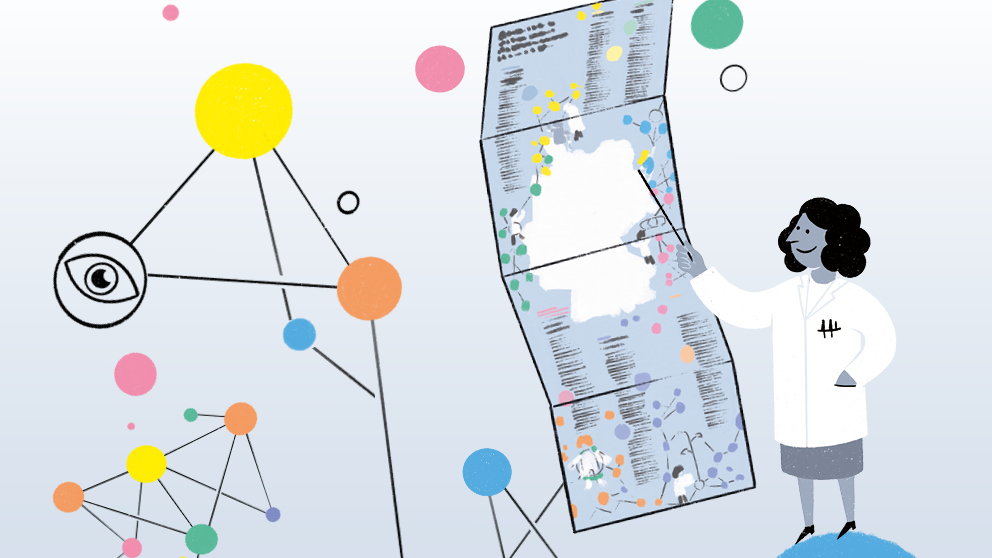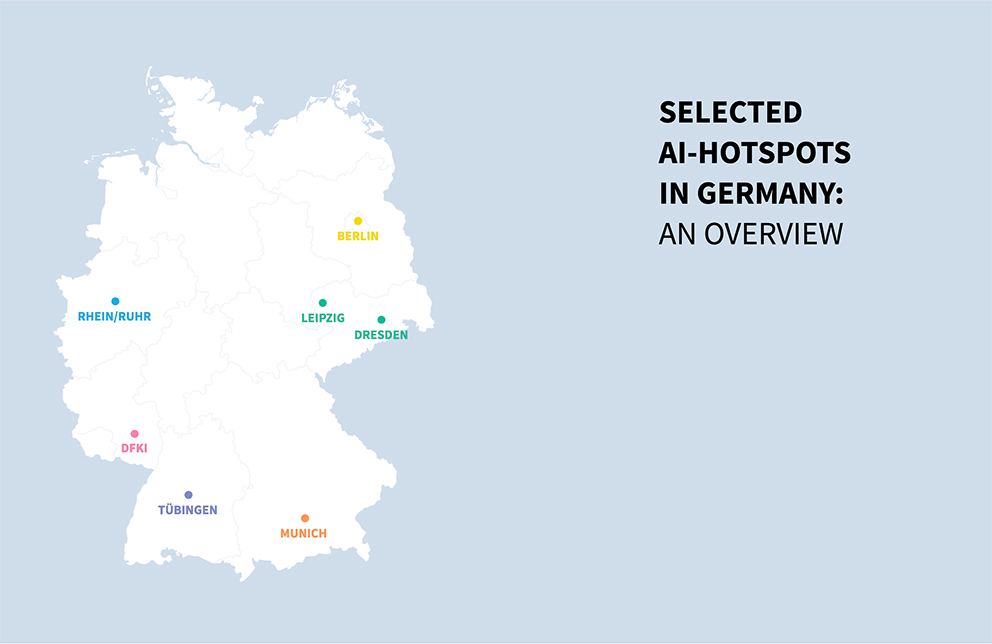Jump to the content
- {{#headlines}}
- {{title}} {{/headlines}}

Online platforms suggest what our next purchase might be, Siri & Co. talk to us, computers help doctors, for example in diagnosing skin cancer. Artificial intelligence has already taken its place in many areas of our everyday lives. And other applications will follow. The world is currently experiencing an unprecedented boom in AI, driven by ever-faster computers, more sophisticated algorithms and exponentially growing data sets. Thanks to the speed of technological progress, AI researchers could see the dreams they have been cherishing since the 1950s come true: to build machines that solve problems themselves, learn new things automatically and respond flexibly to novel conditions – a development that has long since been taking shape and that will change every aspect of people’s future lives around the world. In the global contest, Germany must hold its own in the AI market and ensure that its industrial base is fit for that future. At the same time, every individual’s civil liberties, privacy rights and freedom of choice must be protected.
“AI detects diseases that the human eye simply doesn’t see.”
Against this backdrop, the Federal Government published its first national AI strategy in autumn 2018, setting out the general conditions for the technological megatrend and seeking to drive development. It envisages, amongst other things, connecting and expanding the centres of excellence spread around the country that specialise in AI research and teaching (see map of Germany). The declared aim of the policy is that Germany should be a top location for artificial intelligence whilst AI Made in Germany becomes a quality label. In the scientific funding field, Germany is looking to fill up to 30 Alexander von Humboldt Professorships for Artificial Intelligence in the next five years. Apart from the technological side of AI, they are designed to embrace the socio-economic, ethical and legal aspects, as well.
Highly sought-after AI experts
Top-class AI experts are few and far between and coveted everywhere. But there are good reasons for choosing Germany: “There are a lot of strong research personalities working here who are keen to foster stimulating collaborations,” comments robotics expert, Oliver Brock, who returned to Germany from the United States ten years ago (see “Berlin”). “Our strengths are excellent basic research and the fantastic ecosystem of applied research,” says Dortmund computer science professor, Katharina Morik (see “Rhein/Ruhr”). AI pioneer, Wolfgang Wahlster, emphasises the close links to business: “If you want to put artificial intelligence into practice, Germany is the place to be” (see “DFKI”). And Holger Hanselka, President of Karlsruhe Institute of Technology, underscores the importance of the wealth of data on topics like climate, health and the environment at research institutes here: “They are real trump cards for AI researchers.”
Unlike the United States and China, Germany and Europe have chosen a third path that consciously builds on data protection, sustainability and citizen participation. Basically, it is about creating a better, fairer world with the aid of AI, the politicians state in their visionary speeches.
Interactive map:

The interactive map is optimized for desktop computers. As an alternative, you may download the map as a PDF file here.
published in Humboldt Kosmos 111/2020
